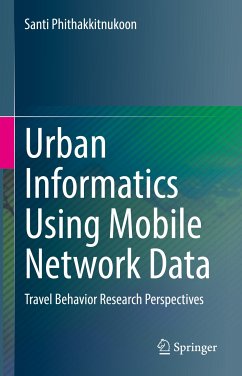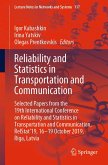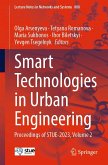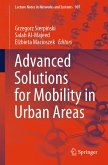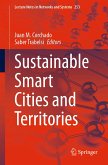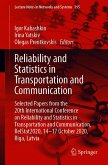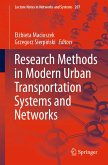This book discusses the role of mobile network data in urban informatics, particularly how mobile network data is utilized in the mobility context, where approaches, models, and systems are developed for understanding travel behavior. The objectives of this book are thus to evaluate the extent to which mobile network data reflects travel behavior and to develop guidelines on how to best use such data to understand and model travel behavior. To achieve these objectives, the book attempts to evaluate the strengths and weaknesses of this data source for urban informatics and its applicability to the development and implementation of travel behavior models through a series of the authors' research studies.
Traditionally, survey-based information is used as an input for travel demand models that predict future travel behavior and transportation needs. A survey-based approach is however costly and time-consuming, and hence its information can be dated and limited to a particular region. Mobile network data thus emerges as a promising alternative data source that is massive in both cross-sectional and longitudinal perspectives, and one that provides both broader geographic coverage of travelers and longer-term travel behavior observation. The two most common types of travel demand model that have played an essential role in managing and planning for transportation systems are four-step models and activity-based models. The book's chapters are structured on the basis of these travel demand models in order to provide researchers and practitioners with an understanding of urban informatics and the important role that mobile network data plays in advancing the state of the art from the perspectives of travel behavior research.
Dieser Download kann aus rechtlichen Gründen nur mit Rechnungsadresse in A, B, BG, CY, CZ, D, DK, EW, E, FIN, F, GR, HR, H, IRL, I, LT, L, LR, M, NL, PL, P, R, S, SLO, SK ausgeliefert werden.
Es gelten unsere Allgemeinen Geschäftsbedingungen: www.buecher.de/agb
Impressum
www.buecher.de ist ein Internetauftritt der buecher.de internetstores GmbH
Geschäftsführung: Monica Sawhney | Roland Kölbl | Günter Hilger
Sitz der Gesellschaft: Batheyer Straße 115 - 117, 58099 Hagen
Postanschrift: Bürgermeister-Wegele-Str. 12, 86167 Augsburg
Amtsgericht Hagen HRB 13257
Steuernummer: 321/5800/1497
USt-IdNr: DE450055826
Bitte wählen Sie Ihr Anliegen aus.
Rechnungen
Retourenschein anfordern
Bestellstatus
Storno

